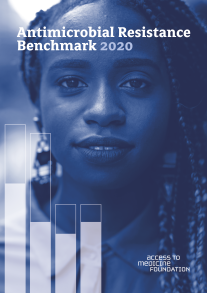2020 Antimicrobial Resistance Benchmark
Date
21 January 2020
Curbing the overuse and misuse of antimicrobials is critical for slowing the spread of antimicrobial resistance (AMR) while new antibiotics are needed to ensure effective treatment options remain available.
The Antimicrobial Resistance Benchmark evaluates pharmaceutical companies in areas where they have the biggest potential and responsibility to limit AMR, such as R&D, managing manufacturing waste and ensuring appropriate access and stewardship.
It measures 30 companies with a major stake in the anti-infectives market, including multinational pharmaceutical companies, biotechnology firms and manufacturers of generic medicines. These are among the last companies to remain committed to developing and producing these products. They have more than 1,500 antibacterial or antifungal medicines or vaccines on the market and account for almost 40% of antibiotics in development.
The findings from the 2020 Antimicrobial Resistance Benchmark indicate that a core group of pharmaceutical companies are making progress in tackling the spread of antimicrobial resistance. More companies are stepping up – with promising ideas for tackling the toughest pathogens, and improvements in tracking resistance and safeguarding the effectiveness of existing products.
However, although a few companies are expanding their efforts, change is not happening at the scale needed to radically impact the threat from drug resistance. With pharmaceutical companies leaving the anti-infectives market due to poor financial rewards, the supply of life-saving medicines are now increasing reliance on just a handful of companies.
“This second Benchmark provides a reality check. The progress we see is being overshadowed by our increasing reliance on just a handful of companies. We can’t take their commitment for granted. It is not too late to prevent irreparable damage to the global supply of antibiotic medicines and vaccines,” says Jayasree Iyer, Executive Director.
